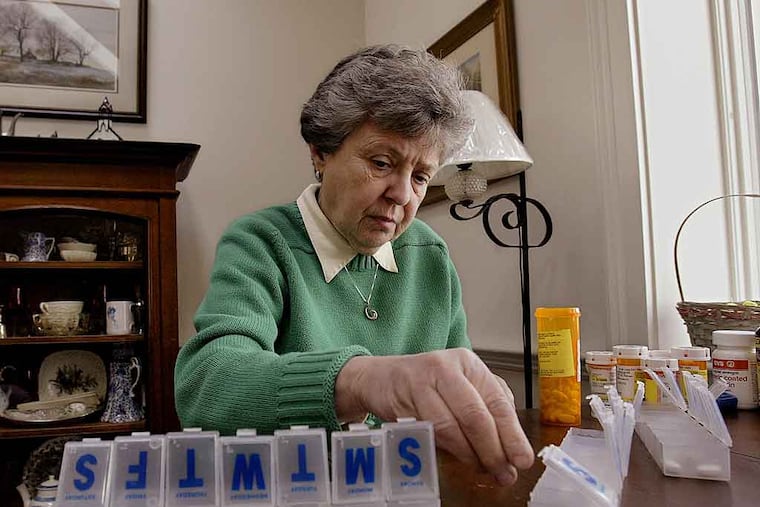Which new diabetes medication is right for you? The choice can be daunting.
It is clear that new diabetic medications help prevent heart attacks and heart failure. Yet there are so many of these medications they present a bewildering choice for patients and doctors.

There are lots of television commercials about new medications for diabetes. Not only is it difficult to keep them all straight, it is hard to understand how patients will be able to afford these expensive drugs.
Type 2 diabetes (in which the body can still make insulin) can often be remedied, at least for a while, with changes in diet and exercise. Diabetes is a major risk factor for heart disease, but like most cardiologists, I leave medications relating to diabetes to family doctors or endocrinologists. Up to now, that has been an easy decision, because the only diabetic medication proven to help prevent heart disease has been metformin, a pill that has been around for many years. It is generic, cheap, and lowers blood sugar. Unfortunately, it is not always effective, and some people just cannot take it because of gastrointestinal issues. Other medicines, such as glyburide and even insulin, may help lower blood sugar, but they do not prevent heart problems.
This has changed. There are now several medications for Type 2 diabetes that lower heart-attack risk, and also help people lose weight. These are the very drugs that are so heavily advertised. I have never prescribed any of these medications, partly because they are very new and do not yet have a track record, and they are unaffordable for many of my patients.
But like most cardiologists, I “don’t do diabetes” — because it’s not my expertise. The new drugs, however, mean I needed to learn more about the topic. Learning from TV commercials is obviously not the optimal approach. As I do not see visiting pharmaceutical representatives, I decided to review the medical literature, to see just how good (or bad) these medications might be.
The result: It is clear that new diabetic medications help prevent heart attacks, heart failure, and can decrease your chance of dying. The problem: There are so many of these medications, they present a bewildering choice for patients and doctors.
Inhibitors vs. agonists
There are two different categories of these medications, both meant only for people with type 2 diabetes, and usually taken along with metformin. Like all drugs, each has both a trade name and a generic name. One kind, called a SGLTZ inhibitor, includes the trade names Jardiance, Farxiga, and Invokana. The generic names all end with “floxin” (empaglifloxin, dapaglifloxin, canaglifloxin) and they are pills taken every day. They will lower the risk of having a heart attack, can help with weight loss, and work by helping kidneys excrete sugar.
The second kind, called GLP-1 receptor agonists, stimulate the pancreas to help release insulin. There are six of these, including Victoza and Trulicity, and the generic names all end with “tide” (liraglutide and dulaglutide). They also help the heart and weight loss. They are injectable, given either every day or once per week.
Reducing blood sugars certainly helps protect blood vessels. But these drugs show an even greater protective effect than blood sugar control alone. Blood vessels become less irritated, decreasing the damage done by out-of-control blood sugar, leading to fewer heart attacks and other vascular problems.
Yet the drawbacks are significant — though not insurmountable:
The average cash price for Jardiance is $529 for a 30-day supply, and prices for the others are similar, putting them out of reach for most people. Those prices need to come down.
The complicated names and plethora of choices lead to confusion and paralysis. The FDA has approved at least nine of these new drugs, resulting in advertising wars, and an assault on all of our senses.
Not many cardiologists, internists, or family doctors prescribe them, usually deferring to endocrinologists. Most people with diabetes do not see endocrinologists, so few doctors prescribe them.
No one is advocating for patients. We need impartial education for doctors and patients, not an advertising blitz.
The potential cardiac benefits of these drugs are as significant as those offered by the even more expensive cholesterol drugs Repatha or Praluent. Yet that isn’t being emphasized, and until it is, cardiologists like me will not realize their importance.
Side effects, such as an increase in genital infections, eye problems, decreased kidney function, low blood pressure, and low sugar, and thyroid issues, mean patients need lab tests in the first few weeks after starting. Like all medications relatively new to market, other side effects are likely to emerge as more people use them.
David Becker, M.D., is a frequent Inquirer contributor and a board-certified cardiologist with Chestnut Hill Temple Cardiology in Flourtown, Pa. He has been in practice for 25 years.